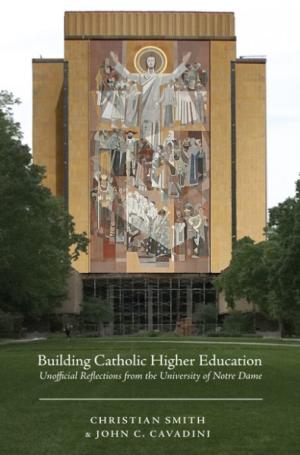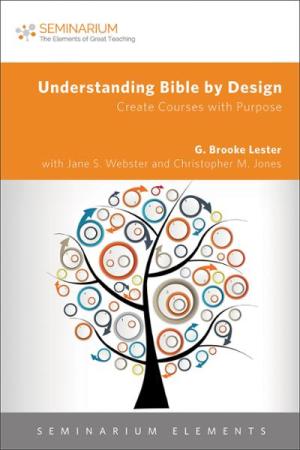Resources

Click Here for Book Review Abstract: American Catholic universities and colleges are wrestling today with how to develop in ways that faithfully serve their mission in Catholic higher education without either secularizing or becoming sectarian. Major challenges are faced when trying to simultaneously build and sustain excellence in undergraduate teaching, strengthen faculty research and publishing, and deepen the authentically Catholic character of education. This book uses the particular case of the University of Notre Dame to raise larger issues, to make substantive proposals, and thus to contribute to a national conversation affecting all Catholic universities and colleges in the United States (and perhaps beyond) today. Its arguments focus particularly on challenging questions around the recruitment, hiring, and formation of faculty in Catholic universities and colleges. (From the Publisher)
Video. Short FAQ  in which Daniel Willingham (Professor of Psychology at the University of Virginia) lays out the case against “Learning Styles” theory. With links to research papers and a YouTube video.
Using seven design principles and a simple method, the World Café provides tools ("a powerful social technology”) for engaging people in conversations that matter.
This portion of the website of a UK “registered charity” and promoter of digital technologies in UK education and research, showcases 50 short case studies Investigating students' expectations of the digital environment and enhancing the student digital experience in higher education, organized according to the main challenges they address. 
An active blog spot supporting "efforts to make public the reflection and study of teaching and learning” — advice and tips for writing the scholarship of teaching. 
This February 2015 posting by Prof. Hacker on the Chronicle of Higher Education site provides brief annotations for “the best” blogs by faculty developers at teaching and learning centers across North America (according to an informal survey). 
Special issue of “Syllabus,” an online journal that posts annotated syllabi and short-article course descriptions submitted by college and university professors. 

Click Here for Book Review Abstract: Edited collection featuring essays from exceptional National Teaching Fellows. Presents the cutting-edge of pedagogical thinking on the most important topics in higher education today, including student engagement, assessment, internationalisation and employability. Destined to become a 'must-read' guide for anyone involved in higher education. (From the Publisher)

Click Here for Book Review Abstract: Today’s seminary and religious-education instructors are expected to design and redesign their courses more nimbly than in the past. We have to adapt our courses to novel learning environments, for more diverse learners, toward more diverse vocations. At the same time, institutional rewards for time invested in course design are fewer than ever. Understanding Bible by Design introduces the reader to Understanding by Design: an approach to course design that is proven time-efficient and grounded in the instructor’s most closely-held convictions about her subject matter’s “big ideas and essential questions.” This book’s contributors (one in Old Testament, one in New Testament, and one in Jewish Studies) demonstrate the value of Understanding Bible by Design for the Biblical Studies instructor, whether at seminary or university, face-to-face or online, from the intimate seminar to the massive MOOC. Lester’s synopsis of course design and suggested action is followed by a collaborative dialogue with Jane S. Webster and Christopher M. Jones. Webster and Jones provide practical commentary regarding the successful implementation of Lester’s proposed approaches. As a group, Lester, Webster, and Jones create a text that extends pedagogical innovation in inspiring but practical ways. (From the Publisher)
How do we enter the practice of self-renwal, given the tricky balancing act of negotiating personal identity in the classroom - both the many wye we identify ourselves, and the ways we are identified by others. 
Wabash Center Staff Contact
Sarah Farmer, Ph.D
Associate Director
Wabash Center
farmers@wabash.edu